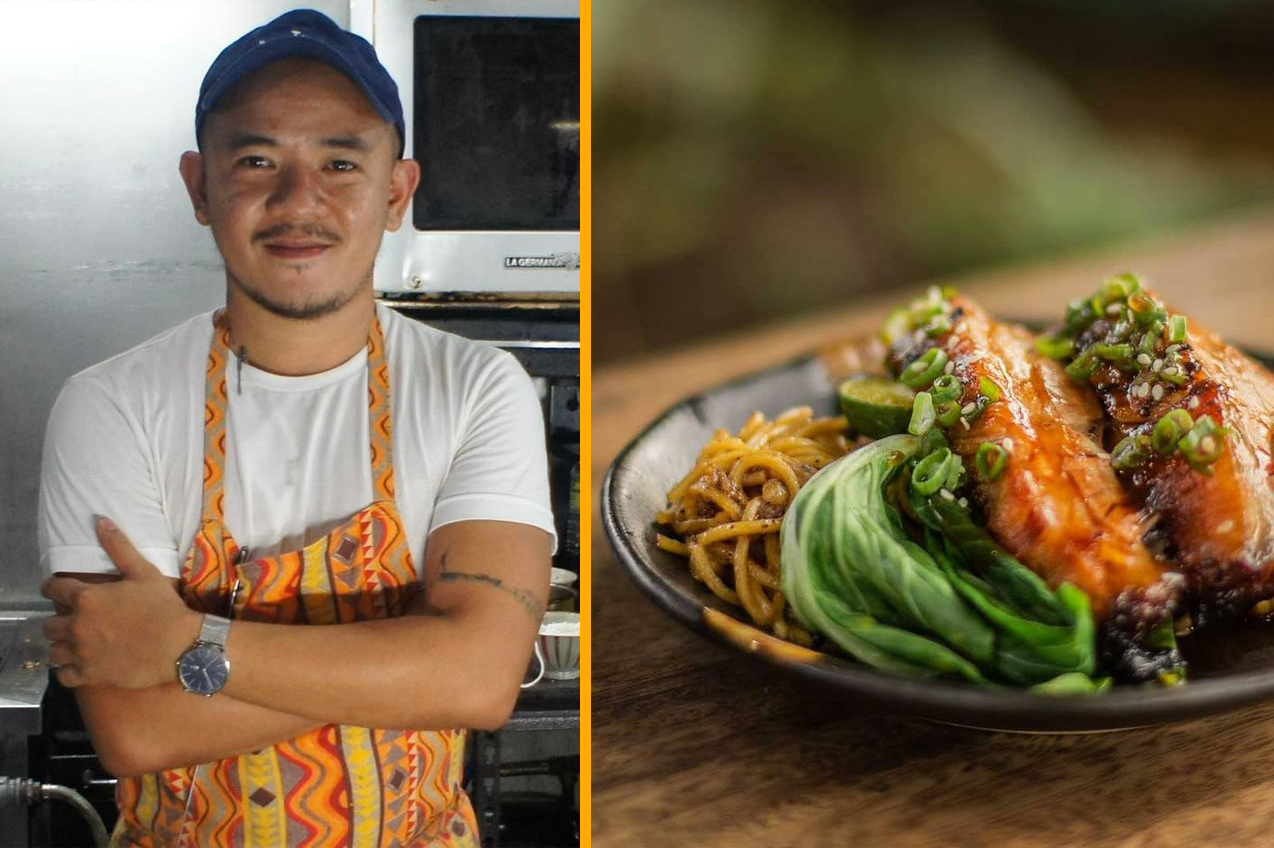Gastronomic delights undoubtedly abound across the Philippines. From refreshing kinilaw (Filipino ceviche) to mouthwatering lechon (roasted pig), many inner-city dwellers often dream of moving to the province to eat simply, eat fresh, and eat well.
One restaurant nestled in the heart of Dumaguete elevates that simplicity, freshness, and deliciousness while staying faithful to its provincial roots. Having survived the throes of a pandemic, Adamo continues to keep relevant in a city teeming with good food. So, how did—and does—Adamo do it?
By emphasizing sustainability, seasonal ingredients, and flavors long cherished by Dumagueteños, Adamo has won the hearts of locals and tourists alike, truly living up to its name, which means “to fall in love” in Latin.
The bistro is often recommended by food-savvy citizens to hungry visitors looking for more than a carinderia experience, but something not as wallet-emptying as fine dining.
Connecting with the community was one of the key aspects of Adamo’s survival throughout the COVID-19 pandemic. While food establishments were closing all around the city, Edison Manuel was determined to keep Adamo running, despite sales dropping by a whopping 70 percent.
Established in 2016 by chef and owner Edison Manuel, Adamo takes on a contemporary casual style, serving a fusion of tastes from the west and the east, particularly California and Dumaguete.
A registered nurse, Manuel enrolled in First Gourmet Academy right after passing the boards and graduated from culinary school in 2011. After working in Manila and living in Los Angeles for a few years, he came back to pursue his passion. He found that the road to success, however, was not a straight path.
“When we created our first menu, it had mostly French-inspired dishes using Filipino ingredients, but people didn’t understand that palate,” Manuel says. “I learned that I needed to run a business, sell dishes, and balance passion and modern techniques with the familiarity of flavor. We now base our menu on seasonality and locality. The flavors are for the market to appreciate so we can continue being in touch with the local community.”
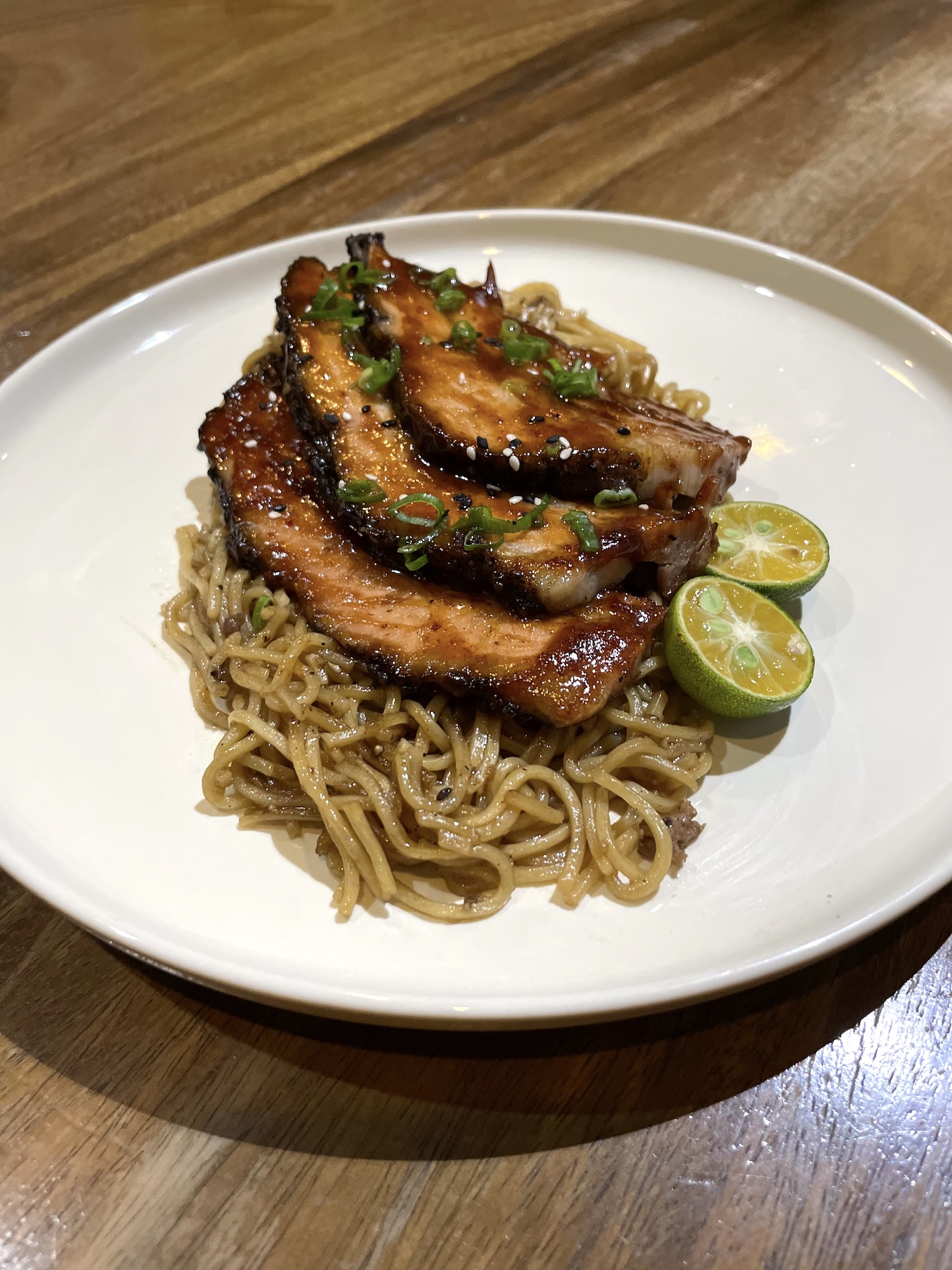
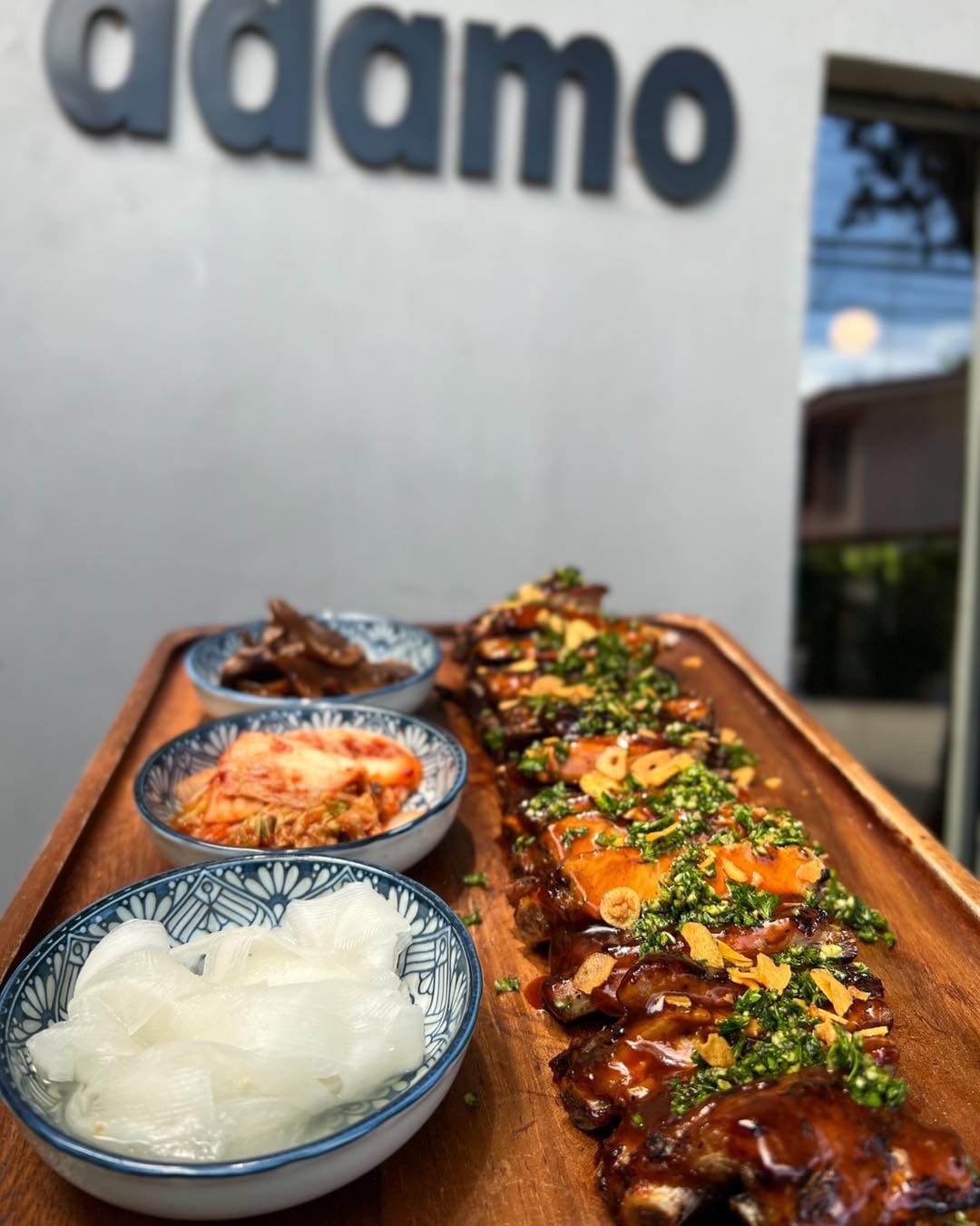
Connecting with the community was one of the key aspects of Adamo’s survival throughout the COVID-19 pandemic. While food establishments were closing all around the city, Manuel was determined to keep Adamo running, despite sales dropping by a whopping 70 percent. Manuel tweaked the restaurant’s menu to suit delivery methods, delegated idle staff to deliver orders to nearby neighborhoods, and joined a collective, citywide effort for support.
“Dumaguete is a small community. Because people couldn’t travel during the pandemic, most locals stayed in the city. So, we created a food movement to help restaurants that didn’t want to close [so they could] try to recover, and we named it ‘dug-ab’ (to burp). These restaurants would then invite other restaurants to cook there, put up a special menu for the day, and invite people over to eat in open spaces.”
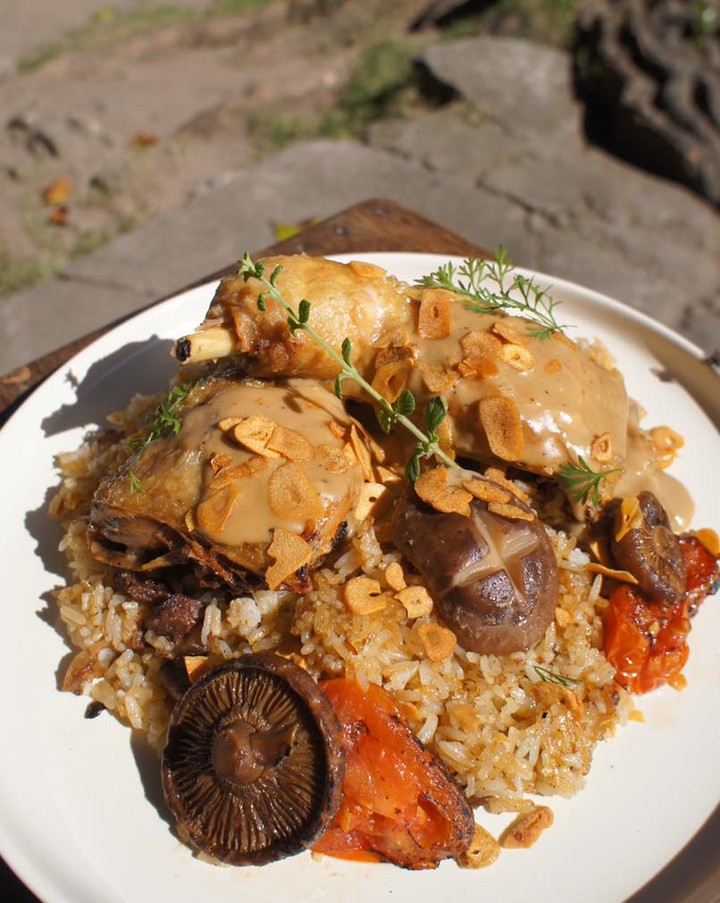
While local community events such as dug-ab kept determined food businesses afloat during peak periods of the pandemic, another challenge was unknowingly underway.
Right before Christmas in 2021, Typhoon Odette (international name: Rai) ravaged Visayas, which was eagerly but slowly recovering from economic losses. This dashed any last hopes of Manuel’s pre-pandemic aspirations to open a fresh fish-focused food establishment in Siquijor.
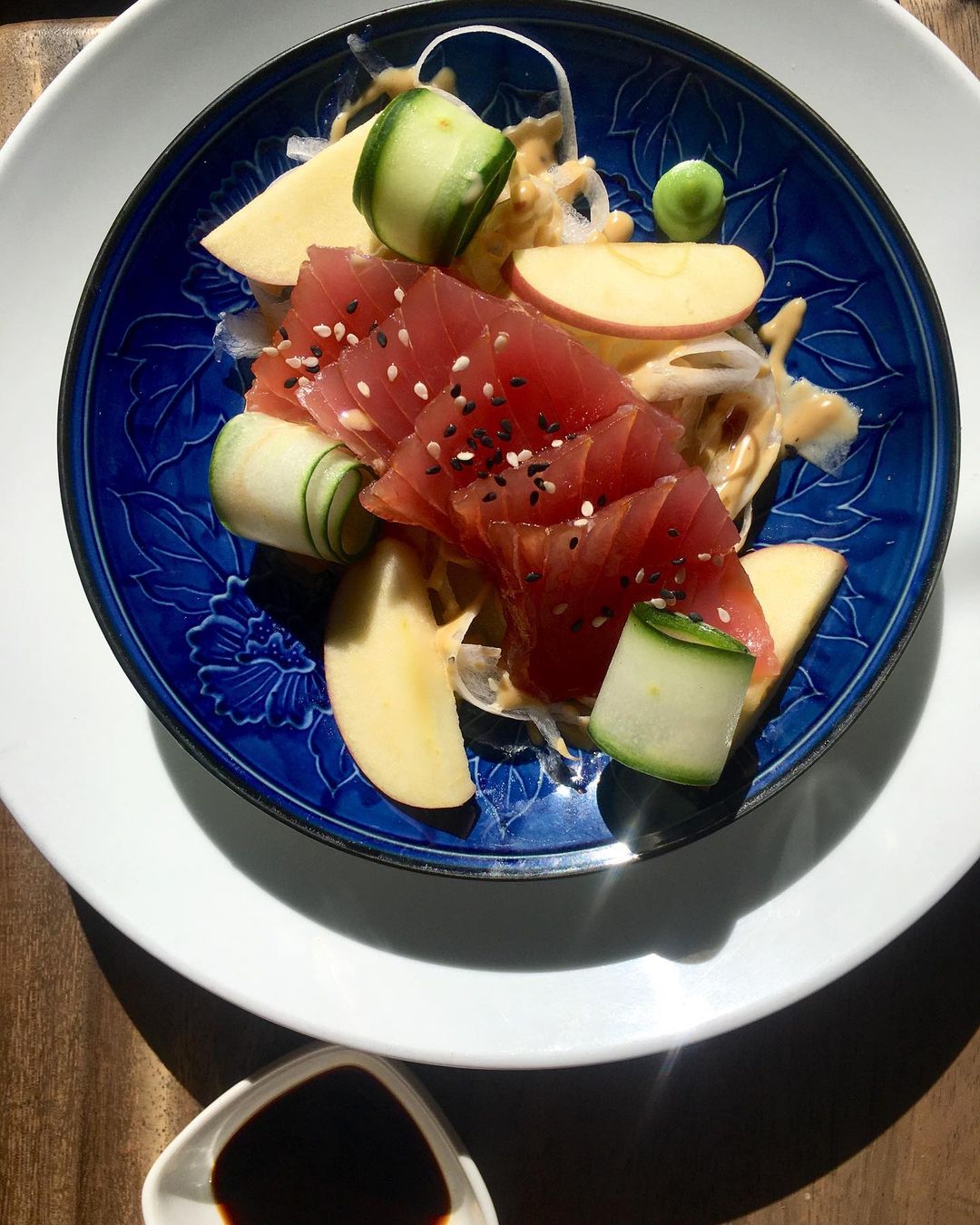
It did not, however, discourage his fervor to source similarly succulent, freshly caught seafood for Adamo. After scoring top-quality tuna from Basay, a town to the west of Dumaguete, Manuel is most excited about launching a sushi bar in the restaurant, drawing inspiration from his previous job in Mecha Uma. It can be said that despite numerous setbacks, Adamo has endured and emerged even stronger. Today, Adamo continues to do better, having doubled the revenue it earned in 2019.
“You really must start with passion. If you don’t have passion, when you get hit by rough months, when you introduce your food and the market doesn’t appreciate it, you must draw from a deeper source of inspiration to continue,” says Edison Manuel.
“You really must start with passion. If you don’t have passion, when you get hit by rough months, when you introduce your food and the market doesn’t appreciate it, you must draw from a deeper source of inspiration to continue,” says Manuel.
By putting quality on top of convenience, Adamo makes it easy to eat fresh, eat well, and eat simply, often enticing first-time diners to second, third, and fourth visits. Dishes frequently rotate depending on seasons, from Visayan dishes such as sinuglaw (a combination of grilled pork and kinilaw) to Adamo’s signature and bestselling fusion option, pancit cooked with the essence of longganisa, paired with a savory slab of smoked pork.
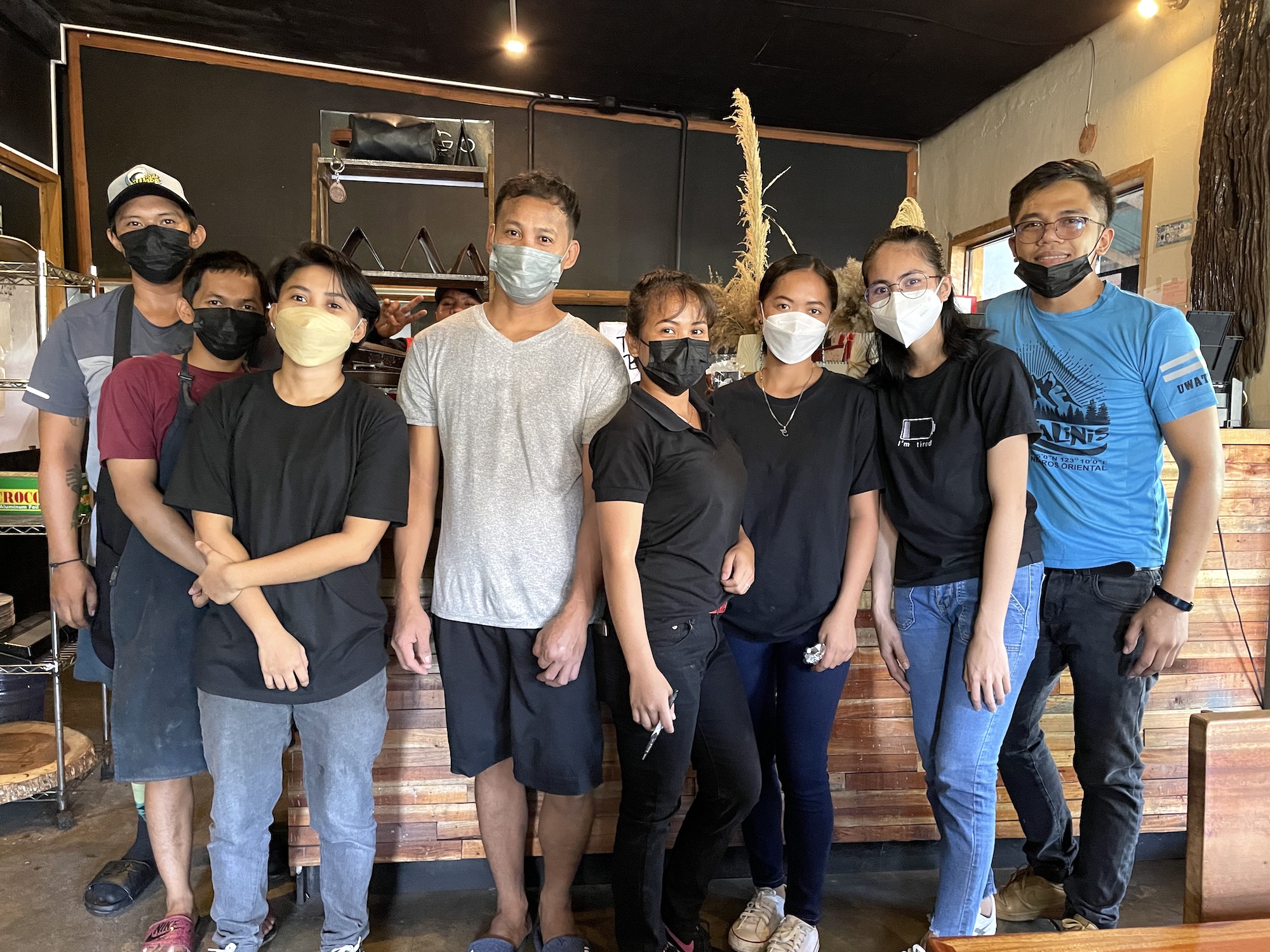
Manuel often innovates recipes with the help of his cooks and staff, who play a crucial role in suggesting new menu ideas and take special time off to learn new cooking techniques with Manuel.
Team effort is also what has given Adamo the extra boost towards its success. Manuel emphasizes the importance of building one’s team and treating them well.
“Growing a business and running a restaurant should be organic. What works for us might not work for them,” Manuel says. “I think what’s most important is being connected to the community. Most restaurants that succeeded in Dumaguete are not franchises. They are homegrown restaurants that are much more connected to the community than franchises are. If you really want to be happy and be involved with the locals, that’s the way to go.”





